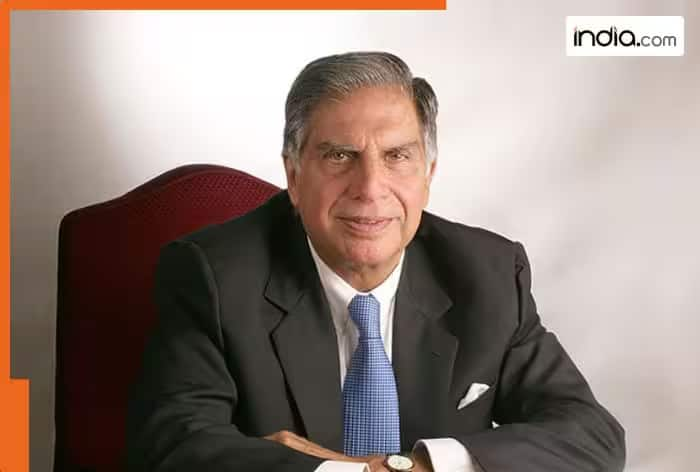Ratan Tata was honoured with the country’s second-highest civilian award, the Padma Vibhushan, in 2008.

New Delhi: Since Ratan Tata’s demise, motivational stories about his leadership have been circulating on social media platforms. From torchbearer to transformer, the late Chairman Emeritus Ratan Tata played a key role in guiding the Tata group into a new age, and did it in his distinctive style. The Tata Group was founded in 1868 by Jamsetji Tata. It has since grown into one of India’s largest multinational conglomerates, with a presence in over 150 countries. But did you know how Ratan Tata acquired the surname ‘Tata’, read this full article…
Ratan Tata, though a member of the Parsi community, has an interesting story behind acquiring the Tata surname. Contrary to common belief, “Tata” isn’t a traditional surname within the Parsi community.
Ratan Tata’s legacy: Here’s how Parsi Dastur family of Navsari got Tata surname, Know its meaning – Read untold story
Ratan Tata’s family lineage can be traced back to Nusserwanji Tata, regarded as the founding figure of the Tata dynasty. Nusservanji was a Parsi priest, referred to as a ‘dastur,’ or ‘dastoor’ a term that denotes religious leaders within the Parsi community, similar to the role of ‘Brahmin’ in Hinduism. Nusserwanji’s contributions laid the groundwork for the Tata family’s future influence and legacy in India, particularly in industry and philanthropy.
Jamsetji Nusserwanji Tata, the founder of the Tata Group, had a deep connection to his birthplace, Navsari, a small town in Gujarat. Born in 1839, he spent his early years there before moving to Bombay (now Mumbai) for further studies. Despite his global ventures and immense success, he has always remained fond of Navsari. He often visited the town, reflecting his lifelong attachment to his roots.
During the ‘Samvad’ podcast hosted by Moneycontrol, Keresi Kaikhushroo Deboo, Vice Chairman of the National Commission for Minorities, revealed that Jamsetji Tata’s ancestors came from the Dastur family, a priestly class among Parsis. In a conversation with Brijesh Kumar Singh, Group Editor of Network18, Deboo shared that Jamsetji, son of Nusserwanji Tata, moved to Mumbai with Rs 21,000 from his father to start his business, aiming to build a larger enterprise than his father’s. This ambition laid the foundation for what would become the Tata Group.
Later, Keresi Kaikhushroo Deboo explained that Jamsetji Tata’s father was known for his fiery temperament. In Gujarati, people with such intense tempers are called “Tata.” As a result, people began referring to him as Tata, and the name eventually became the family’s surname. Today, the family is recognized worldwide by the Tata surname, rather than their original name, Dastur.
Born on December 28, 1937, Ratan Tata was the Chairman of Ratan Tata Trust and Dorabji Tata Trust, two of the largest private-sector-promoted philanthropic trusts in India. He was the Chairman of Tata Sons, the holding company of the Tata Group, from 1991 until his retirement in 2012. Then he was appointed Chairman Emeritus of Tata Sons. He was honoured with the country’s second-highest civilian award, the Padma Vibhushan, in 2008. He passed away in Mumbai on October 9 this year at the age of 86 due to age-related issues.

